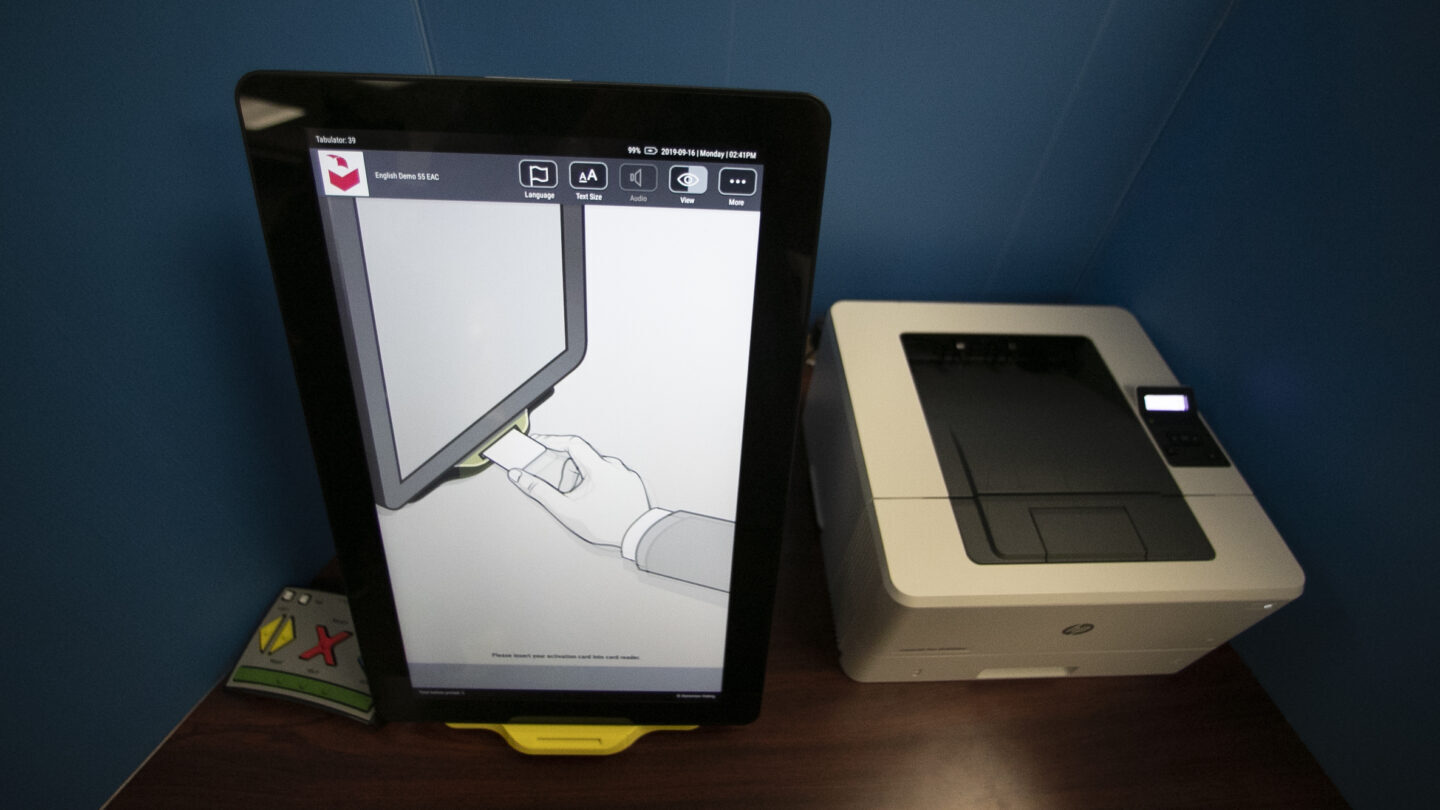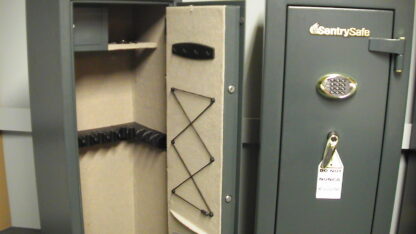Georgia’s automatic voter registration has put almost all eligible citizens on the rolls, but now some Republicans want to turn that system off.
The Senate Ethics Committee on Thursday voted to advance Senate Bill 221, which would require people to opt in to voter registration when they receive or renew a driver’s license. Currently, they’re automatically registered unless they opt out.
The bill also makes it easier for voters to be challenged based on where they live, possibly clearing the way for Republican activists who see the state’s voting lists as bloated and fraudulent to knock thousands of additional voters off the rolls.
The measure is moving forward as Georgia is expected to again be a competitive state in this year’s presidential election and as GOP grassroot activists continue to support Donald Trump’s discredited claims that his 2020 Georgia loss stemmed from fraud.
A 2023 study by the Center for Election Innovation and Research found the share of active registered voters rose to 98% of the voting-eligible population in 2020, from 78% in 2016, when the state began registering people at driver license offices unless they specifically decline. The share dropped to 92% in 2022, which the center characterized as normal for a non-election year.
Republicans argue that the system results in too much extra work for election officials and creates duplicate registrations when someone registers again and is not matched with a previous record.
“The intent is certainly not to reduce voter registration, the intent is to clarify and make voter registration more accurate,” said Senate Ethics Committee Chairman Max Burns, a Sylvania Republican.
Some Republicans also said they thought people should have to affirmatively ask to register to vote, suggesting that it’s not in the state’s interest to register young people who aren’t interested.
“Are we just trying to get a lot of people on the rolls and two or three years later we’re purging all of them because 90% never went to vote anyway?” asked Senate Majority Leader Steve Gooch, a Dahlonega Republican.
But election officials warned that the move would make Georgia’s voting rolls less accurate, not more, because it would reduce verified information flowing to the secretary of state’s office. State Elections Director Blake Evans said that before automatic registration, 11% of registrations were flagged for problems based on information that they might have moved, versus only 4% after.
“We would see more people voting in the wrong precincts and the wrong contests for the wrong candidates because we would not get that information so consistently,” Evans said.
Opponents also said it was likely to cause a sharp drop in the number of people registering, based on a 15-month period beginning 2021 when the state’s driver license system was reprogramed to require voters to opt in.
“I think that incident is so important to understand because it is a view into the future of what this bill would do if it was implemented,” said Rep. Saira Draper, an Atlanta Democrat. “The result in that was a massive decline in voter registrations.”
The measure declares that any time someone registers to vote in some other state or locality, they have changed their residence. It lets registrars consider the U.S. Postal Service national change of address list or commercial information to determine whether someone lives where they claim. That could let counties hire EagleAI, a private Georgia company that claims it has private information that will help counties void improper voter registrations.
The measure also declares that a county election board can uphold challenges to a voter’s registration by other citizens if someone has registered to vote in a different jurisdiction, registered for a homestead exemption on a residence in a different jurisdiction, has a missing or invalid birth date, has a missing or invalid address, or if a voter has registered at a nonresidential address, including a post office box.
Some of those provisions could cause problems for voters through no fault of their own. Because of data entry problems, for example, some voters have birth years of 1900 in state records.
The measure would also let counties hold elections on paper ballots with approval of the State Election Board. That could clear the way for jurisdictions to abandon the state’s electronic ballot marking system, as many Republican activists demand. But the measure strikes language about use of paper ballots in emergencies, which Draper said could create problems.









